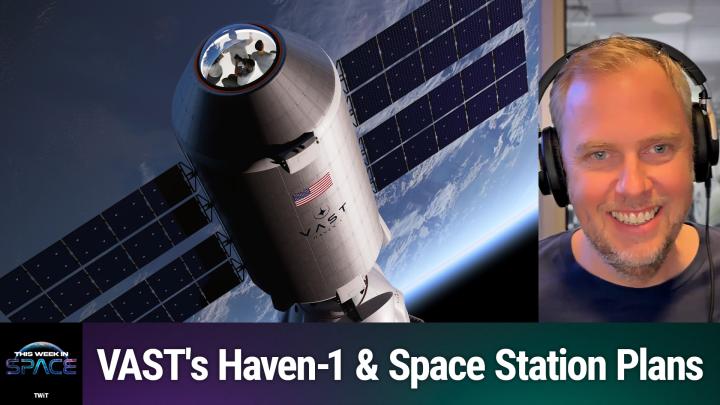The Future of Space Habitation: An Interview with VAST CEO Max Haot
AI created, human edited.
In the latest episode of This Week in Space, hosts Rod Pyle and Tariq Malik interview Max Haot, the CEO of VAST, a company aiming to revolutionize space habitation through the development of artificial gravity space stations. VAST's ambitious plan seeks to address the challenges of long-duration spaceflight and enable permanent human settlements in space.
At the heart of VAST's ambitious plan is the upcoming launch of their Haven-1 space station. Designed to demonstrate crewed missions and secure NASA funding as a commercial LEO destination, Haven-1 is a critical first step in the company's roadmap. As Max explains in the interview, this space station will not only provide valuable data and experience but also serve as a testbed for the technologies needed to create large-scale artificial gravity habitats.
One of the most fascinating aspects of VAST's approach is their focus on artificial gravity. By designing space stations that rotate, the company aims to create Earth-like gravity conditions, which could be a game-changer for human health and well-being during long-duration missions. Max delves into the science behind spinning space stations and the potential applications for space travel to Mars and beyond.
But creating artificial gravity is no easy feat. As Max discusses, there are significant technical challenges to overcome, such as developing large-diameter docking adapters and ensuring that sensors can function correctly in spinning environments. VAST's team of talented engineers is tackling these challenges head-on, leveraging cutting-edge technology and innovative design solutions.
Beyond the technical aspects, VAST's vision has the potential to transform the way we think about living and working in space. By enabling permanent human settlements in orbit, the company is opening up new possibilities for scientific research, space tourism, and even space-based manufacturing. As Max explains, the ability to create Earth-like conditions in space could unlock a new era of space exploration and development.
Throughout the interview, Max's passion for space and his commitment to VAST's mission are evident. With a clear roadmap and a rapidly growing team, the company is poised to make a significant impact on the space industry in the coming years.
To learn more about VAST's groundbreaking plans for artificial gravity space stations and the future of human habitation in space, be sure to listen to the full episode of This Week in Space. This is a conversation that will leave you inspired and excited about the possibilities that lie ahead.
